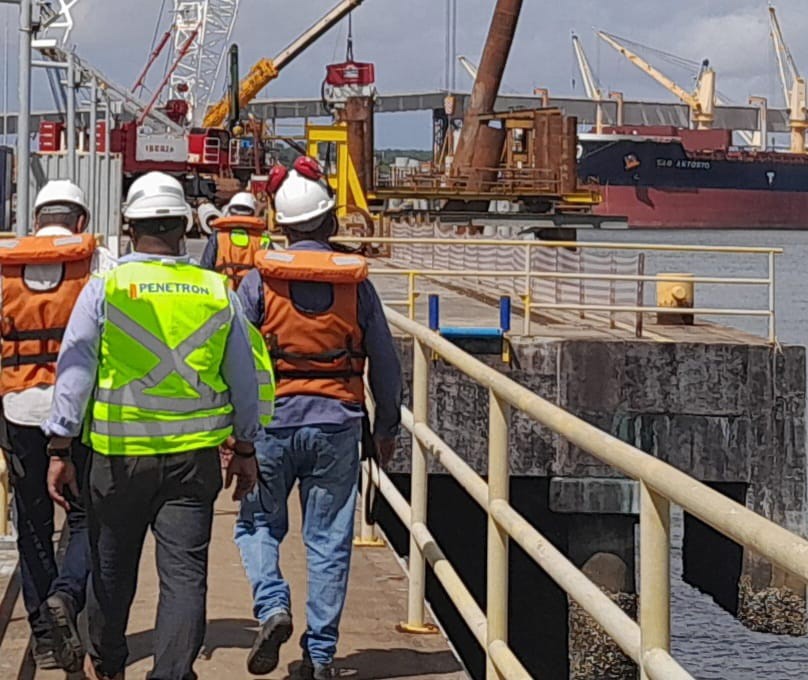The April 2025 completion of the final stage of construction of the Aratú Port facility in Camaçari, Brazil, unveiled new docks and terminals with massively expanded freight handling capacities. PENETRON, a topically-applied crystalline waterproofing material, was specified for the expanded concrete docks of the Aratú Port to protect all exposed concrete surfaces from the marine environment.
Part of the Salvador Metropolitan Region (Bahia) on the northeast coast of Brazil, Camaçari is a city of approximately 305,000 inhabitants. As one of the largest industrial centers in Brazil, Camaçari is home to several factories and petrochemical plants, including the Brazilian multinational company, Braskem, the largest oil company in Latin America. BYD, a Chinese electric automaker, is set to open a large new factory in the city later in 2025 – its first in the Western Hemisphere.
The Aratú Port facilities are an essential lynchpin of this industrial center, with a constant traffic of fertilizer, bulk mineral and agricultural (soy and corn) export shipments. The new ATU-12 terminal began operating at full capacity in November 2024 and the ATU-18 terminal was completed in April 2025.
“Originally constructed almost 50 years ago, the Port of Aratú looks much different now after completion of the second and final phase of construction,” says Cláudio Neves Ourives, CEO and Managing Partner of Penetron Brazil. “Today, Aratú is equal to many of the world's leading seaports in terms of cargo handling capacity and productivity.”
Under new ownership since 2022, the ATU-12 and ATU-18 terminals in Aratú have undergone a comprehensive range of improvements and modernization, including a new berth, structural renovations, and new facility buildings. The new terminals' productivity will now jump from 300 to 2,000 tons per hour in each berth, and handling capacity is expected to increase from 2 million to 12.5 million tons per year.
During the planning phase of the Aratú project, Adriano Fortes, the project architect, noted the quayside concrete structures and the new port terminals would require an especially durable waterproofing solution to protect the new facility from constant exposure to seawater and the resulting chloride penetration – a major cause of concrete deterioration. Penetron Brazil was asked to provide a durable concrete waterproofing solution.
“After reviewing the concrete waterproofing specifications, PENETRON, a crystalline topical material, was applied to the new port structures,” adds Cláudio Neves Ourives. “With its proven durability and relatively simple application, it was the best choice for Aratú.”
Applied as a slurry across 18,000 m2 (198,000 ft2) of prepared concrete surfaces, PENETRON creates a waterproof barrier to any further chloride ion penetration to prevent the onset of corrosion of the embedded steel. In the presence of moisture, PENETRON penetrates deeply into the concrete matrix. The ensuing chemical reaction fills microcracks, pores, and capillaries with an insoluble crystalline formation, which prevents water and water-borne chemicals from entering, even under high hydrostatic pressure.
“Finally, cracks that develop during the lifetime of the concrete are automatically self-healed by PENETRON, resulting in permanent concrete protection,” concludes Cláudio Neves Ourives.

Penetron on-site support: The quayside concrete structures and new terminals at Aratú used Penetron for permanent protection from constant exposure to seawater and the resulting chloride penetration.



